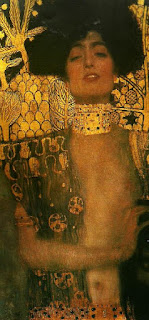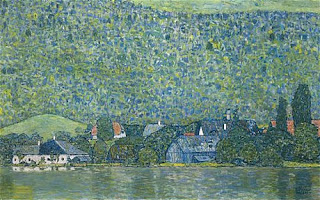A Shadow Beyond Midnight
by Armando Ortiz
There are times when things get jumbled up and one loses track of chronological time. We reach a point where time becomes a vast plane of unwinding events that seem to flow through us at a speed that is undecipherable to the human mind. At other times mundane tasks take on a life of their own, washing the dishes that have accumulated in the sink, brushing your teeth before and after sleep. Time seems to fly right past us, and the daily grind of repetition seems to become a necessary evil. We all become that boxer that after being knocked down gets up and goes back to that same fighting position. Training most of his life for these battles has made his skills become second nature. Sometimes the fighter ends up prevailing but sometimes he goes down again. For Will, it was supposed to be like any other night, but things transpired so fast that now it is hard to tell what is and isn’t real.
He was down to his last pair of jeans, and needed to get ready for the coming week. Most of the dirty clothes were piled up making a smelly mountain. With arms crossed, he stood beside it and stared at the small mound. Putting the dirty clothes in a sack brought back memories of things he had done the week before, wine that he’d drank, tomato stains from the pasta he’d had with his date, and numerous chili bean stains from the countless lunch breaks that were enjoyed at Tommy Burgers. Bright reds and dirt browns seemed to be the variants of the soiled laundry.
He had decided to do his laundry at the usual time-past midnight. The 24 hour Laundromat down the street would be somewhat empty at night, and he wouldn’t have to worry about the crowds or the eye contacts. Being in a place where many strangers gathered, especially in a public facility, where different characters always came in and out made him a bit uncomfortable. You never knew what would happen in a place like that.
He packed his stuff in the car and returned to his apartment to get some loose change and a bottle of detergent. The golden yellow detergent was hidden in between his plastic file cabinet and his drawer. He got back to his little four door sedan, turned it on, and pulled out of the parking garage. As he drove out of the building and attempted to turn on the radio, someone yelled, “Hey Will!” He stopped the car and rolled down the window to see who was hollering. At a distance he saw the dark silhouette of a heavy set woman walking her dog. He resumed his driving, and the steady metallic riding of the hi-hat beat came from the speakers, “Footsteps in the Dark,” by The Isley Brothers began to play. As the car slowly accelerated, he noticed a rusty substance smeared on the ground a few feet in front of the vehicle.
After making a left at the corner, he noticed that while changing lanes the streaks were still there. The headlights lit a path that was only several feet ahead which added to the confusion as to what was beyond the lights. This particular evening was extraordinarily dark. He turned on the high beams, but the streaks seemed to move further up ahead to where the light merged with the darkness resembling the long shadows that late September sunsets make. The funky slide base of the chords coming from the speaker created a soothing box of safety within. Once again a voice pierced through his thoughts, “Hey Will, look!”
Stopping at an intersection, he saw a crowd of people on the opposite side of the street. For Will, the voices sounded familiar, but he couldn’t make a visual connection with the faces. Then out of nowhere, he heard a voice say, “Looks alive.”
Inhaling deeply into his lungs, he heard himself say, “Keep calm. Relax. Stay focused, and don’t slow down or swerve around the thing.” He tried focusing on the steady bass drum that seemed to beat a bit faster than his heart.
He’d never noticed the neon signs that decorated the streets of Los Angeles by night, but today the lights were magically iridescent purples, shimmering in crimson reds, incandescent yellows, and metallic steel blues. It was as if things were moving slowly and now he had time to see the signs that he’d driven past so many evenings. The night air felt cool and crisp. A voice once again spoke and calmly said, “Breathe in, breathe out. Relax. Get some air.”
He drove a bit further passing some old shops and a couple of residential areas. Reaching an intersection, Will swerved to the left hoping to outwit the thing that was ahead, but it was useless. He once again heard the unknown voice say, “Turn slowly with your arms at an angle. Imagine yourself carrying a heavy log.” Will’s conceptual reality was melting into a dream, and he couldn’t quite tell if the thing that he was following was talking to him or if it was the voice of some other being.
He reached the intersection and the traffic light shone incandescent red. At a stop light, another car pulled up to his left. His vision was becoming a blur and his mind unfocused. The passenger looked at him, and covered their mouth in horror. Their look made him feel dizzy and nauseous, transforming everything around into a dizzying haze. He closed his eyes for a moment, and took a deep breath. He wanted to take another look at the face inside the other car, but thought twice about it. Making eye contact with the wrong person in Los Angeles was always a tricky thing and most of the time opened the gates to a river of curses and threats. “Ah fuck it, take a look again,” he thought. As his eyes opened and turned to see, the traffic light simultaneously lit its green light and the car sped off.
Adjusting the rear view mirror he only saw his own pair of obsidian eyes staring back at him. A cold breeze began crawling up his leg, like an ant that’d just come into a cozy home from the outside. A cold invisible fog kept creeping up his body gathering at his torso. He felt he had cotton balls inside his throat, and the pounding of his heart radiated in all directions. Breathing was becoming abnormal, and the car kept moving to an unknown destination, lights began flashing all around him. For a moment he thought he was lying in the middle of a carnival. He heard childish chatter, and the yells of unseen women, light bulbs seemed to circle all around. Then, out of nowhere, the profile of a deer appeared that made eye contact with Will. Its hazel eyes connected with Will’s volcanic eyes, and for a moment it seemed that both vehicle and wild mammal were on the same lane about to slam into each other. Yet, all that was happening was too overwhelming. The body was now trembling, and a sudden sound of black rubber and asphalt was heard.
The car rolled into the parking lot of the Laundromat, and suddenly a crowd of people emerged. The car wildly came to a screeching stop. There was a bundle of flesh and hair on top of a puddle of red liquid. A frightened human circle absorbed the car. Someone in the crowd yelled, “I think he’s alive!” “Someone clean him up!” There were countless eyes surrounding him, so he closed his eyes. He hated going to the Laundromat. A stranger ran up, and while checking for a heartbeat searched his pockets for a wallet. The hazel eyes now had a sweaty human face that seemed to look at Will with determined emptiness, and as soon his leather pouch was found, took off running like a wild deer, disappearing into the midnight.
“Will wake up! Will! We’re gonna be late!,” he was shaken awake.
“Wha….wha,” he sat up, “What’s going on!”
“Dude, you were deep asleep, but we have to go, remember that we need to be in Amboy before noon. So get up and start taking down your tent.”















